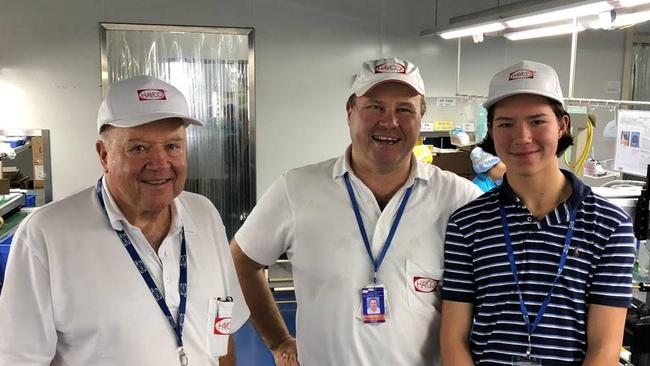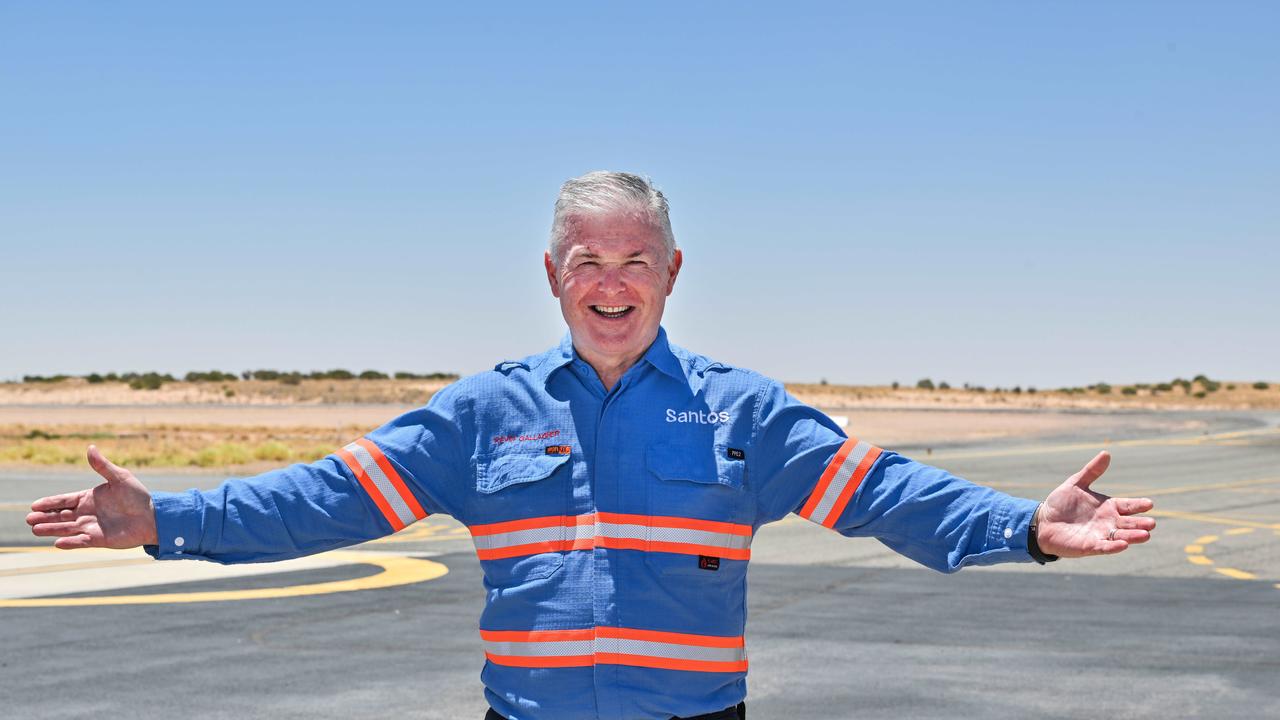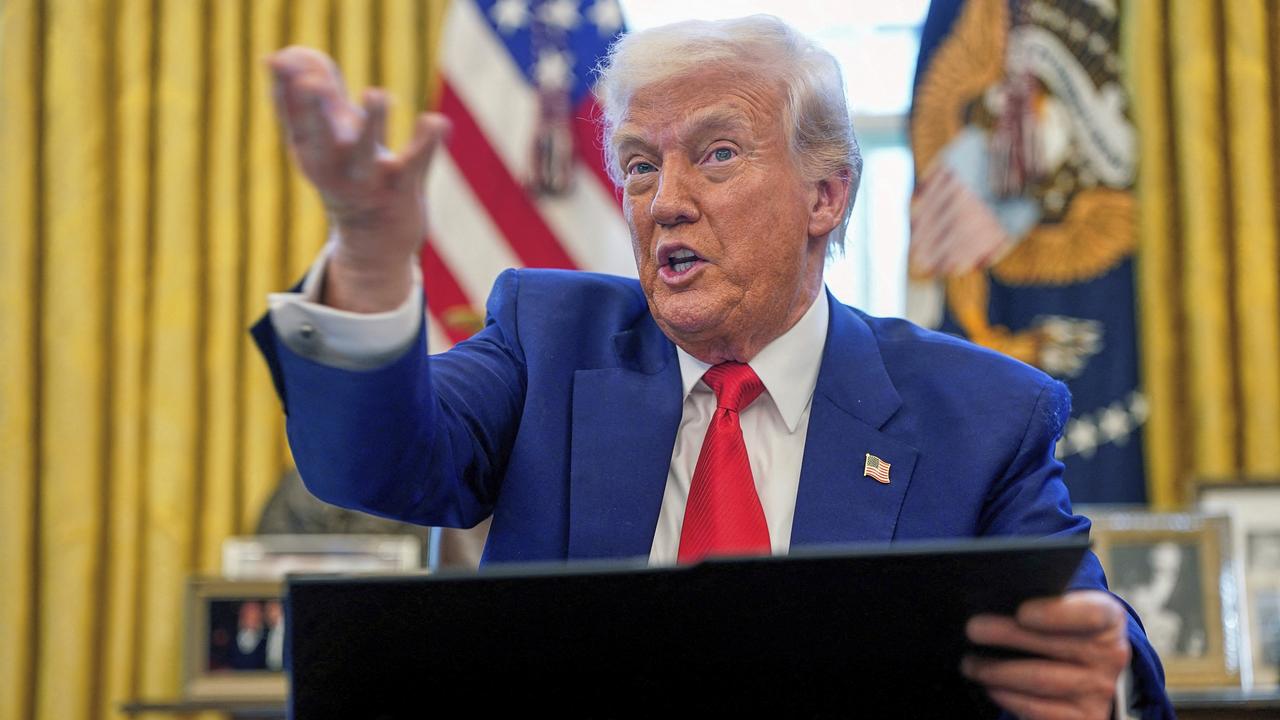Trump China tariffs accelerate world supply chain changes
America’s trade war against China will lead to a “massive shock” to world supply chains, says HK-based Christopher Hay.

Donald Trump’s trade war against China will lead to a “massive shock” to world supply chains, with US buyers scrambling for new sources of product outside China, Hong Kong-based Australian manufacturer Christopher Hay says.
“It’s a massive change,” he says. “Everyone is coming to terms with it. We are going to see a dramatic shift in the manufacturing of consumer goods.”
The chief executive of Hayco, which has made household brushes and other plastic products in southern China since the mid-80s, Melbourne-born Hay says rising wage and other costs were seeing manufacturing move away from China in recent years.
But he says the Trump tariffs on goods from China, which have only just begun to take effect, will accelerate the change.
“It’s a bit crazy. There are a lot of people scrambling at the moment to find manufacturing outside of China.”
Hay’s father Donald Hay, whose grandfather founded the Adelaide-based Sabco brush company in 1892, set up his first factory in the southern Chinese town of Shenzhen in 1983.
Christopher Hay worked in the business, taking over as chief executive from Donald five years ago, with his father stepping back to become executive chairman.
Hayco has three factories in southern China, employing 5000 people, making products such as electric toothbrushes, commercial brushes, household mops, baby bottles, water bottles, and water filtration units. It supplies companies such as Walmart, Procter & Gamble, 3M, Rubbermaid, Kmart and Lowe’s.
Hay decided three years ago to set up a factory in the Dominican Republic after some major US customers wanted to have production closer to home. He opened that factory last year. The Trump tariffs on Chinese-made goods — which currently apply to just under half of all Chinese exports to the US — have encouraged his company to review its operations in China and step up its plans to expand its plant in the Dominican Republic.
Hay says the imposition of the Trump tariffs from July this year is now seeing long-time US buyers of goods made in China rushing to work out how to source their goods from other places.
Hay is inundated with requests from US buyers who usually source goods from China, and know he has a factory in the Dominican Republic, to buy product from him.
“We are getting inquiries from buyers in the US about products we don’t even make,” he says. “They know we have a factory in the Dominican Republic and they want us to make their products.”
Hayco sells about 60 per cent to 70 per cent of its product to buyers in the US, exporting others to Europe and to one company in Geelong, which sells brushware to Woolworths.
A private company, it does not release financial figures but he says it produces 130 million finished products a year.
At the moment, fewer than half the products it makes in its factories in China are subject to the new US tariffs. One product has a tariff of 10 per cent and others 25 per cent.
But Trump is already threatening to put tariffs on almost all the $US500 billion ($708bn) worth of Chinese exports to the US, and potentially increase the 10 per cent tariffs on some categories to as much as 25 per cent across the board, possibly by next year.
“We had a few customers pushing us to manufacture outside China before the tariffs,” Hay says. “Now the tariffs are in force, they are pushing us harder.”
Hay, who is heading to the Dominican Republic this week, is watching the situation closely.
He says it would be “make a big difference” to his company if Trump were to decide to impose tariffs on all goods from China.
“There will also be a lot of our competitors with big issues as well.”
Hay says his company is not in a position to bear the higher costs of the new US tariffs. “We already had a plan to move some categories of production to the Dominican Republic,” he says.
“But we are now moving things over more quickly than expected. If we hadn’t set up the plant in the Dominican Republic we would be in trouble now.”
He says US buyers who have bought product made in China are facing hard decisions. They could try to pass on higher tariffs to customers in the US, look for new suppliers outside China or just stop selling some products made in China if they are no longer price competitive.
“It is going to be quite drastic for a lot of companies,” he says.
Hay says he knows some companies in the US, particularly in the home and kitchen products market, whose whole business has been based around selling goods made in China.
“For some of them, their whole categories of product are going to be subject to tariffs. It is going to be a heartache for them.”
It was Donald Hay, Christopher’s father, who saw the opportunity to set up a brush manufacturing business in southern China, a vision that other executives in his family business Sabco did not share.
He took off to Hong Kong and set up his own business, building factories in China that once employed more than 10,000 people.
Ongoing production efficiencies have seen that come down to a workforce of about 5000, who produce double what the company did 10 years ago.
And now Christopher Hay is overseeing the next generation of world supply chain restructuring moving beyond China.
Hay says Hayco’s plan will see it have a workforce of about 2000 in the Dominican Republic next year.
But he is still a great fan of the efficiency of production in southern China. “China is one of the world’s great supply chains, particularly for electronic components. The electronic manufacturing in Shenzhen and the Pearl River Delta is probably the best in the world.”
Hay says his company plans to “rebalance” its operations, using its China factories to focus on developing and testing its equipment for manufacturing and doing some manufacturing for suppliers outside of the US, and products that may not be subject to US tariffs.
But instead of doing all its manufacturing in China, it can keep some operations there while sending its China-developed manufacturing machines to its plant in the Dominican Republic for the final manufacturing.
“The underlying demand for our goods is sound, but we are making a dramatic shift in how we operate,” he says.
“It will probably take us two years to make the adjustment.”
Over time, he says, the company could look for other places of manufacturing, potentially in eastern Europe, but his big focus now is the Dominican Republic.
Hay says his two sons, who are at school in Melbourne, already speak Chinese.
“I am probably going to get them to learn Spanish as well as Chinese,” he says.




To join the conversation, please log in. Don't have an account? Register
Join the conversation, you are commenting as Logout